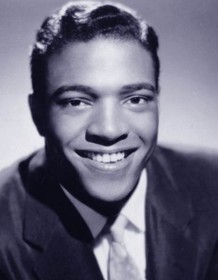
Clyde McPhatter
Highest Rated: Not Available
Lowest Rated: Not Available
Birthday: Nov 15, 1932
Birthplace: Durham, North Carolina, USA
Best known as the singer of the Drifters and later as a solo act, Clyde McPhatter possessed an elegant tenor voice that made him a star and proved an influence for decades of soul and R&B to come. His roots were in gospel; he was born to a Baptist minister in Durham, North Carolina and grew up singing in his church. When McPhatter was a teen his family moved to New Jersey and then New York City, where he formed his own gospel group, the Mount Lebanon Singers. After winning Amateur Night at the Apollo Theater he was recruited by the soon-to-be hitmaking R&B group, Billy Ward & his Dominoes. McPhatter appeared on the Dominoes' 1951 hit, the classic double entendre "Sixty Minute Man" but didn't sing lead. He was however featured on the following year's "Have Mercy Baby," which was a hit as well as a landmark: Based on the gospel tune "Have Mercy Jesus," it was the first R&B hit to draw from gospel and feature a churchlike call-and-response. There was also a gospel feel in McPhatter's further hits with this group, including "The Bells" and "These Foolish Things." In 1963 McPhatter left that group and formed the Drifters, one of the Atlantic label's flagship R&B groups. They debuted in September of that year with a vocal-group classic, "Money Honey," and there were further hits with "Such a Night," "Honey Love" and the definitive R&B version of "White Christmas"-all cut during McPhatter's 18-minth tenure with the group, which wrapped up in late 1954. His first stop after the Drifters was the U.S. Army, but he wound up stationed in America and didn't need to put his recording career on hold. Striking out as a soloist, he took in the influence of Nat King Cole and Frank Sinatra, and made orchestrated records designed for pop crossover. This too was initially a success: 1958's "A Lover's Question" continued his run of classic singles, and there were further hits with "Love Has Joined Us Together" (a duet with Ruth Brown) and "Treasure of Love." His final Top 20 hit, "Lover Please," was a country-ish tune written by Billy Swan. But by the mid-60s, McPhatter found himself on the wrong end of changing musical trends, and changes of label (to MGM and then Mercury) didn't help. After the hits leveled off in the US, he moved to England and maintained a following there through the late '60. He returned to America in 1970 and recorded a planned comeback album, but died at age 39 due to complications from alcoholism, on June 23, 1972. In later decades McPhatter would be acknowledged as an influence on R&B greats from Smokey Robinson to Aaron Neville. He was also the first artist to be inducted into the Rock & Roll Hall of Fame twice, as a solo artist and a Drifter.
Filmography
Movies
| Credit | |||||
|---|---|---|---|---|---|
| No Score Yet | No Score Yet | Mr. Rock and Roll | Self | - | 1957 |
 >
>
